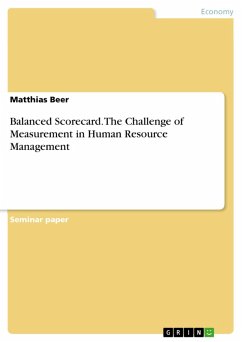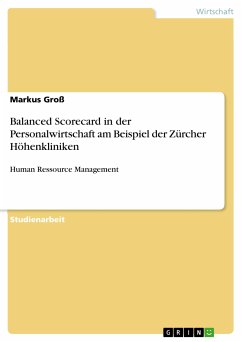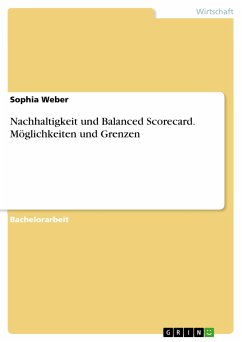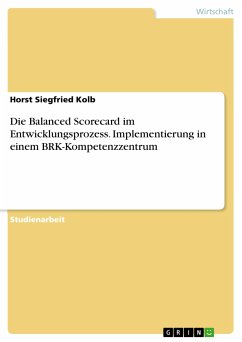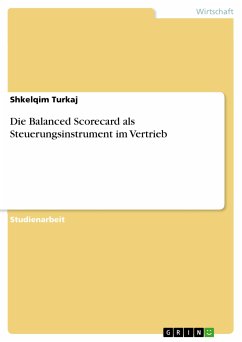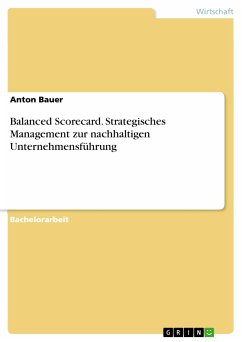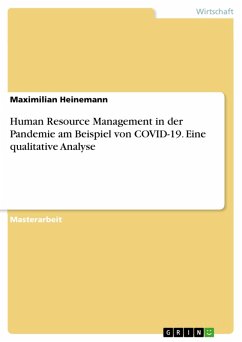Seminar paper from the year 2011 in the subject Leadership and Human Resources - Miscellaneous, grade: 2.0, University of applied sciences, Munich, course: MBA, language: English, abstract: As people are the most important and valuable assets a company has, the human resource management (HRM) has a strategic role to play. However, not always this importance of HRM is seen and human resources (HR) as an organization have in some companies a minor standing. In order to measure the contribution of HRM to the corporate results a measurement system has to be established. This measurement system, the balanced scorecard (BSC), breaks down the corporate strategy to each level of a company and describes measures accordingly which finally makes the HRM role measureable. This assignment provides some background information about the balanced scorecard approach in general and for human resource management in particular. The information covers the different perspectives of a BSC as well as some possible measures. Further on, the performance measurement in HRM is described dealing with an explanation why it is not straight forward and were difficulties are. The chapter deals also with the benefits and how to measure them. As a summary the ad-vantages and limitations in using a balanced scorecard in the HRM are given. The work is closing with the ITM checklist providing a holistic overview of using the BSC approach inside a company and in HRM.
Dieser Download kann aus rechtlichen Gründen nur mit Rechnungsadresse in A, B, BG, CY, CZ, D, DK, EW, E, FIN, F, GR, HR, H, IRL, I, LT, L, LR, M, NL, PL, P, R, S, SLO, SK ausgeliefert werden.

